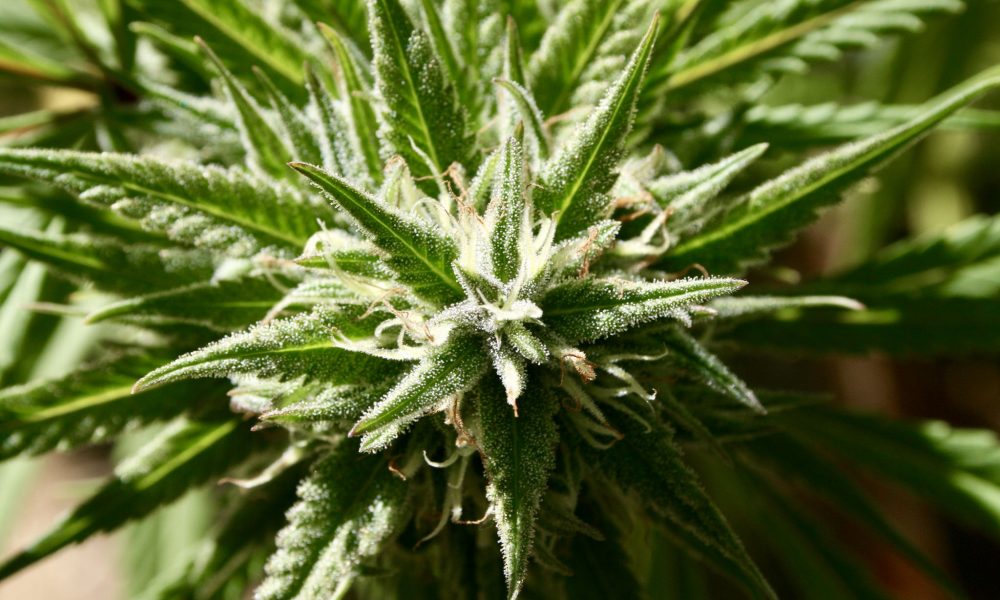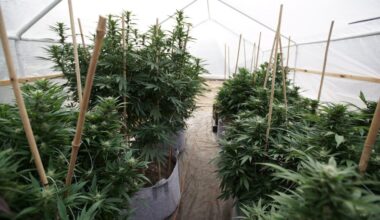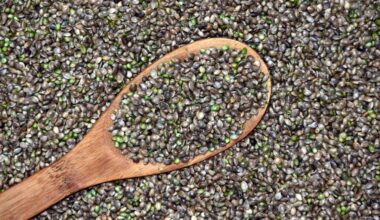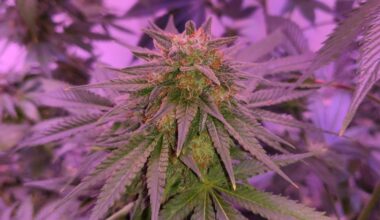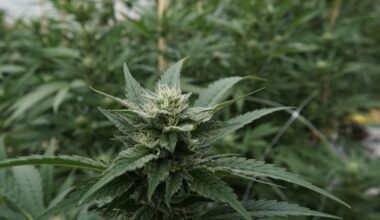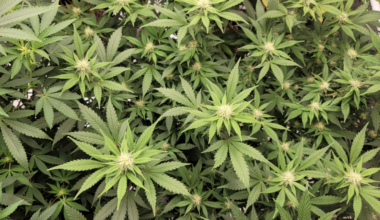The governor of Illinois recently signed a bill that would make it so courts cannot deny petitions to expunge or seal records based on a positive drug test for marijuana.
Gov. J.B. Pritzker (D) signed the legislation, sponsored by Rep. Carol Ammons (D) and Sen. Jacqueline Collins (D) in their respective chambers, late last month. It advanced through the legislature in April.
The measure will revise the state’s Criminal Identification Act to stipulate that courts “shall not deny a petition for expungement or sealing because the petitioner has submitted a drug test taken within 30 days before the filing of the petition for expungement or sealing that indicates a positive test for the presence of cannabis within the petitioner’s body,” a synopsis says.
“People looking to correct their criminal record should not be stopped from meaningfully participating in society because of a positive drug test for cannabis,” Collins said in a press release. “We have to stop treating its use as grounds for dismissal with respect to jobs and petition-filing.”
.@senatorjacqui Collins’ measure removing prohibitions against cannabis users becomes law https://t.co/MF5Bh5P2ka pic.twitter.com/wK297NdZOX
— IL Senate Democrats (@ILSenDems) June 3, 2022
“People deserve second chances, and it is important that we afford this opportunity to those whose circumstances may have led them to crime,” the Senate sponsor said. “This legislation is especially meaningful for our communities of color, who face disproportionate disparities in the criminal justice system.”
Ammons previously said the measure is “exciting step forward in closing the existing loopholes that still criminalize Illinoisans for using cannabis years after its legalization.”
The new law takes effect on January 1, 2023.
The governor previously took pride in announcing that more than 500,000 expungements and pardons had been processed for people with low-level marijuana offenses on their records in late 2020.
Still, advocates were disappointed with the failed outcome of the separate employment-related legislation from Rep. Bob Morgan (D) and Sen. Robert Peters (D) that would have provided protections to workers who lawfully use marijuana off the job and prevented discrimination against most job applicants who test positive for cannabis.
—
Marijuana Moment is already tracking more than 1,000 cannabis, psychedelics and drug policy bills in state legislatures and Congress this year. Patreon supporters pledging at least $25/month get access to our interactive maps, charts and hearing calendar so they don’t miss any developments.![]()
Learn more about our marijuana bill tracker and become a supporter on Patreon to get access.
—
Meanwhile in Illinois, adult-use marijuana sales reached nearly $132 million in April, the second highest monthly total since the market launched in 2020 and another sign that the state’s industry is stabilizing following a slump at the beginning of this year.
The totals don’t include medical cannabis products, which are reported separately by a different state agency.
While Illinois broke its yearly record for cannabis sales in 2021—with more than $1.4 billion in cannabis sold last year—marijuana purchases dipped in January and February, following the December 2021 record-high of $137,896,859.
From last year’s sales, Illinois generated almost $100 million more in tax revenue from adult-use marijuana sales than from alcohol in 2021, state data found. It’s unclear what factors may have contributed to the dip at the beginning of this year, or the recent rebound. However, the unofficial cannabis holiday 4/20 takes place in April, which may have driven up sales.
Marijuana purchases also ticked up in April 2021 compared to the prior month, though the May data and subsequent months of last year were mostly higher.
With respect to marijuana tax revenue, Illinois is using part of those dollars to fund equity initiatives in the state. For example, officials announced in December that applications were opening for $45 million in new grants—funded by cannabis tax money—that will support programs meant to reinvest in communities most harmed by the drug war.
That marked the second round of funding to be issued through the state’s Restore, Reinvest, and Renew (R3) program, which was established under Illinois’s adult-use cannabis legalization policy. The law requires 25 percent of marijuana tax dollars to be put in that fund and used to provide disadvantaged people with services such as legal aid, youth development, community reentry and financial support.
Organizations that received grants through the initial R3 round will have their funding renewed for another year to ensure that they can continue providing services in their communities.
Last year, in July, state officials put $3.5 million in cannabis-generated funds toward efforts to reduce violence through street intervention programs.
A state-funded initiative was also recently established to help residents with marijuana convictions get legal aid and other services to have their records expunged.
It’s these types of initiatives that Toi Hutchinson recently told Marijuana Moment that she’s most proud of as she transitioned from being Pritzker’s cannabis advisor to the president of the national advocacy group, the Marijuana Policy Project (MPP).
Delaware House Upholds Governor’s Marijuana Legalization Veto
Photo courtesy of Brian Shamblen.
Medical Disclaimer:
The information provided in these blog posts is intended for general informational and educational purposes only. It is not a substitute for professional medical advice, diagnosis, or treatment. Always seek the advice of your physician or other qualified healthcare provider with any questions you may have regarding a medical condition. The use of any information provided in these blog posts is solely at your own risk. The authors and the website do not recommend or endorse any specific products, treatments, or procedures mentioned. Reliance on any information in these blog posts is solely at your own discretion.
